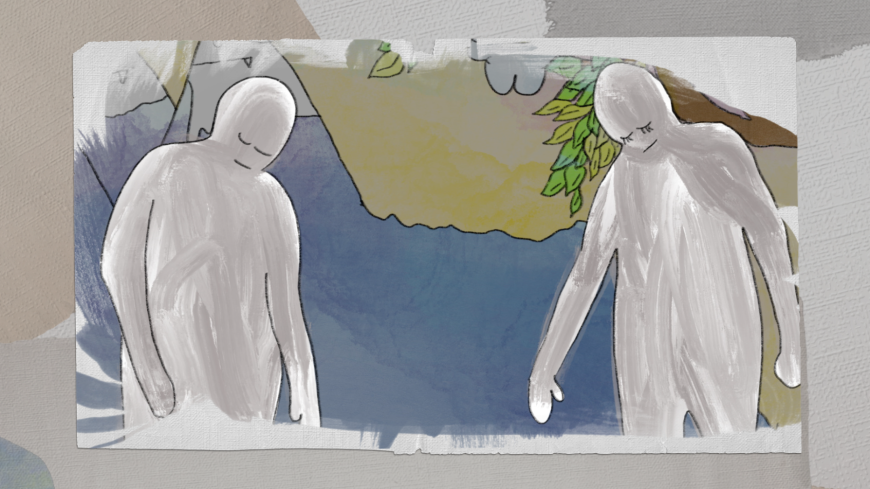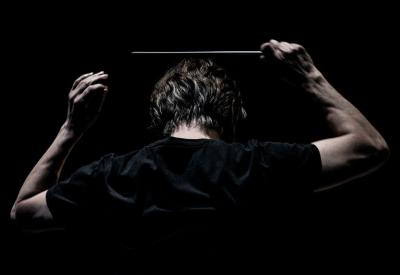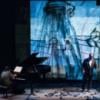
Two hundred and twenty-two years after Beethoven wrote his first and only ballet music, the San Francisco Symphony will give the local premiere of The Creatures of Prometheus in Davies Hall Feb. 24–27.
SF Symphony Music Director Esa-Pekka Salonen and animator Hillary Leben collaborated in creating what the London Guardian called “a fun and witty take on Beethoven’s ballet.”
These concerts have a Covid-thwarted history. Originally, Salonen set them as part of his first season as SF Symphony’s music director in 2021, part of a two-week Prometheus program, with Franz Liszt’s symphonic poem of the same name to follow. The pandemic wiped the whole season out, including Salonen’s plans for concert versions of Richard Strauss’s Elektra and Béla Bartók’s Bluebeard’s Castle.
The operas are gone, at least for now, as is part two of the Prometheus celebration, but The Creatures of Prometheus has another chance — and in a live concert, rather than as at Salonen’s streamed version in London. There, with Salonen as conductor laureate, the Philharmonia Orchestra performed the work in 2020 in the same narrated-illustrated production that’s coming to San Francisco.
The Prometheus legend is about the Titan who defied the gods by stealing fire from them to give to humanity, fire symbolizing knowledge and technology. In some versions, including Beethoven’s, Prometheus is also credited with the creation of humanity from clay.
Zeus, king of Olympian gods, took a dim view of the Titan for being a champion of humankind, sentencing Prometheus to eternal torment, bound to a rock where an eagle — the emblem of Zeus — is sent to eat his liver, which would then grow back overnight, only to be torn out again.
Instead of the struggle between the Titans and the gods, Beethoven’s work focuses on Prometheus’s creation and molding of humans. Salonen further brightens the picture with this multimedia performance, enhanced by Gerard McBurney’s libretto and Leben’s hilarious animated projections.

Salonen’s upbeat approach is no surprise to anyone who knows of his Covid fan tutte operatic romp in Finland during the worst days of the pandemic. Of the Beethoven ballet, Salonen said: “This is more about the trickster, somebody similar to Loge in the Wagner Ring, than the tragic figure as he is also known.”
The music will be new to most concertgoers, at least until the finale, which the composer used again in his Eroica Symphony. Coming soon after the completion of his First Symphony, Prometheus shows the composer at an early stage of creative genius. As to Beethoven’s intent with the work, it is to provide an Enlightenment-age parable of the humanitarian power of art, unfolding on Parnassus, the mountain sacred to Apollo as god of the arts.

Salonen has long been involved with the subject: “Greek mythology has shaped culture,” he said. “It is absolutely central in our experience of ourselves, our relationships, and our emotional lives. These powerful stories are a central part of traditions and all they have shaped.” Two of Salonen’s major works, Nyx and Pollux, are titled after Greek and Roman mythological characters, respectively.
Leben said: “It was a joy creating the animations for Beethoven’s Prometheus. I laughed the entire time I was drawing it!
“I am a projection designer, but I’m also a comic artist and animator, publishing autobiographical comics. This is the first time I’ve been able to utilize both skills at the same time. Sometimes I still can’t believe they will put my silly drawings up there with the San Francisco Symphony!
“The idea, of course, is to walk the viewer through the ballet. The music tells a vivid story, and with a visual element, that story really comes to life. I adore that aspect of this work. I love taking part in making this kind of music more accessible.”
The narrator is actor Keith David, who says, “I played Prometheus in Aeschylus’s play Prometheus Bound many years ago, but only heard of Beethoven’s composition.
“Having an opportunity to perform this great work with such a prolific conductor as Esa-Pekka is like living a dream! I am honored and deeply grateful to be able to participate in this wonderful adventure.”







